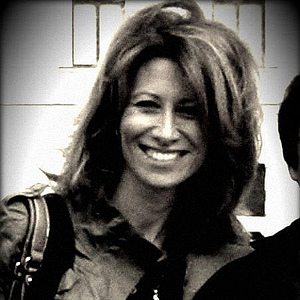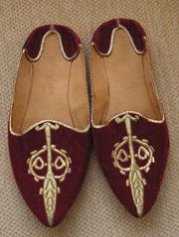VP Biden’s Sensational Revelation of
Phone Calls with Pres. Sargsyan

Armenians worldwide were scandalized last week by Vice President Joe Biden’s revelation that Pres. Sargsyan had told him: “look, do not force this issue [Armenian Genocide recognition] now, while we are in negotiations [with Turkey].”
Biden’s statement posted later that day on YouTube — www.youtube.com/watch?v=C-vVX2B1H3k — was so shocking that most Armenians refused to believe that Pres. Sargsyan would have discouraged the American President from recognizing the Armenian Genocide! Some went as far as to question if the speaker shown on video was really Biden, and if his words had been altered. Others wondered about the identity of the young man conversing with Biden, suspecting him to be an impostor or a foreign agent.
Given the far-reaching consequences of the words attributed to Pres. Sargsyan, his press secretary immediately issued a categorical denial. Two days later, the US Embassy in Armenia issued a clarification/retraction. Taking into account these confusing and contradictory statements, I will try to shed some light on the lesser known aspects of this episode:
1) The young man speaking with VP Biden on YouTube is not an impostor. He is an Armenian-American activist.
2) It is not widely known that right after Pres. Obama issued his April 24, 2009 commemorative statement, Biden phoned three prominent Armenian-Americans. He informed them that Pres. Obama had omitted the Genocide word from his statement after Pres. Sargsyan gave his consent during a phone call with the Vice President. Clearly, Biden was using his conversation with Sargsyan to excuse Pres. Obama’s failure to keep his campaign promise to Armenian-Americans.
3) Biden repeated the same statement last week, this time on video. He was trying to win over Armenian-Americans to support Democratic candidates in the tightly contested November 2nd elections. When the young man asked Biden what message did he have for the Armenian community which was “burned” or deceived by Pres. Obama, the Vice President reassured him that the administration was “not backing off” from its promise on the Genocide. He added: “The Turks have to come to the realization of what the reality is.” Biden then conveniently blamed Sargsyan for Pres. Obama’s lack of acknowledgment of the Armenian Genocide. The Vice President concluded his comments by cynically stating with a chuckle: “Reality has a way of intruding.”
4) Armen Arzumanian, Pres. Sargsyan’s press secretary, issued a prompt rebuttal, stating that the President “did not use the expression ascribed to him in the video, directly or indirectly.” Arzumanian boldly called upon the White House to release the transcripts of the two phone conversations between Pres. Sargsyan and VP Biden in April 2009.
5) On October 29, the US Embassy in Armenia reacted by announcing that during his two phone conversations with Biden in April 2009, “Pres. Sargsyan did not raise the issue of the content of Pres. Obama’s statement for Armenian Remembrance Day or seek a delay in consideration of House Resolution 252.” This carefully worded statement was meant to soothe the Armenian government’s severe irritation at Biden’s surprising disclosures.
It would have been far more informative, however, had the U.S. government released the transcripts of the two phone conversations between Pres. Sargsyan and VP Biden. The Armenian side could have also clarified matters by releasing its transcripts of the phone calls, if they were taped, or a summary record. Furthermore, since the two leaders were using an interpreter, it would be interesting to compare Pres. Sargsyan’s Armenian words with those translated into English – which was what Biden actually heard!
In the absence of a transcript, outsiders have no knowledge of what was actually said during these phone calls. Yet it is clear that starting in early 2009, Obama administration officials were pressuring the Armenian government to sign an agreement with Turkey, so they could use it as an excuse for not recognizing the Armenian Genocide. And that is exactly what happened, when Armenia and Turkey signed a preliminary agreement, “a roadmap,” on the eve of April 24, 2009. Pres. Obama quickly capitalized on it. In his “Armenian Remembrance Day” statement, he avoided the word genocide by claiming that Armenia and Turkey “have agreed on a framework and roadmap for normalization.”
The controversy regarding what Pres. Sargsyan may have told Vice President Biden is one more unwelcome outcome of the Armenia-Turkey Protocols. However, the video had the unintended side effect of raising the Armenian Genocide issue to the highest echelons of the U.S. government and received coverage by worldwide media. A week before the Armenian activist’s conversation with Vice President Biden, Armine Babayan of Los Angeles also had an important personal encounter. She had the rare opportunity to speak directly with Pres. Obama about the Armenian Genocide during his campaign stop in Las Vegas. Turkish denialists must not be too pleased that within one week the President and Vice President of the United States were reminded of their unfinished agenda on the Armenian Genocide



 ih from the Muslims and introduced the rosary in Christianity. A Tespih is composed of 99 beads, representing the 99 names of Allah. The string is used to praise Allah as follows: 33 times the word ‘Süpannalah’ is spoken, which means ‘Praise be to God’. Then ‘Elhümdullilah’ is repeated 33 times, meaning ‘Glory be to God’. For the final 33 beads ‘Allahu Akbar’ is repeated which means ‘God is most great’. After these repetitions a final prayer is said, bringing the total number of prayers to one hundred. In the Koran the Prophet Mohammed said: ‘Whoever completes a hundred, by telling these beads, all his sins shall be forgiven.’ Some Tespihs have 33 beads. They are used in the same way but are more manageable.”
ih from the Muslims and introduced the rosary in Christianity. A Tespih is composed of 99 beads, representing the 99 names of Allah. The string is used to praise Allah as follows: 33 times the word ‘Süpannalah’ is spoken, which means ‘Praise be to God’. Then ‘Elhümdullilah’ is repeated 33 times, meaning ‘Glory be to God’. For the final 33 beads ‘Allahu Akbar’ is repeated which means ‘God is most great’. After these repetitions a final prayer is said, bringing the total number of prayers to one hundred. In the Koran the Prophet Mohammed said: ‘Whoever completes a hundred, by telling these beads, all his sins shall be forgiven.’ Some Tespihs have 33 beads. They are used in the same way but are more manageable.”

 Research has so far traced the history of Turkish costume back to the eighth century, before the Turkish conquest of Anatolia. The Turks of Central Asia were a nomad people whose needs were mostly supplied by their herds, so leather wool and hair were used in many diverse ways to make tents, furnishings, clothing and other daily needs. Of course one of these uses was shoes, and the earliest type of leather shoe made by the Turks was the çarık, and there are still traditional çarık makers in some Anatolian villages.
Research has so far traced the history of Turkish costume back to the eighth century, before the Turkish conquest of Anatolia. The Turks of Central Asia were a nomad people whose needs were mostly supplied by their herds, so leather wool and hair were used in many diverse ways to make tents, furnishings, clothing and other daily needs. Of course one of these uses was shoes, and the earliest type of leather shoe made by the Turks was the çarık, and there are still traditional çarık makers in some Anatolian villages.